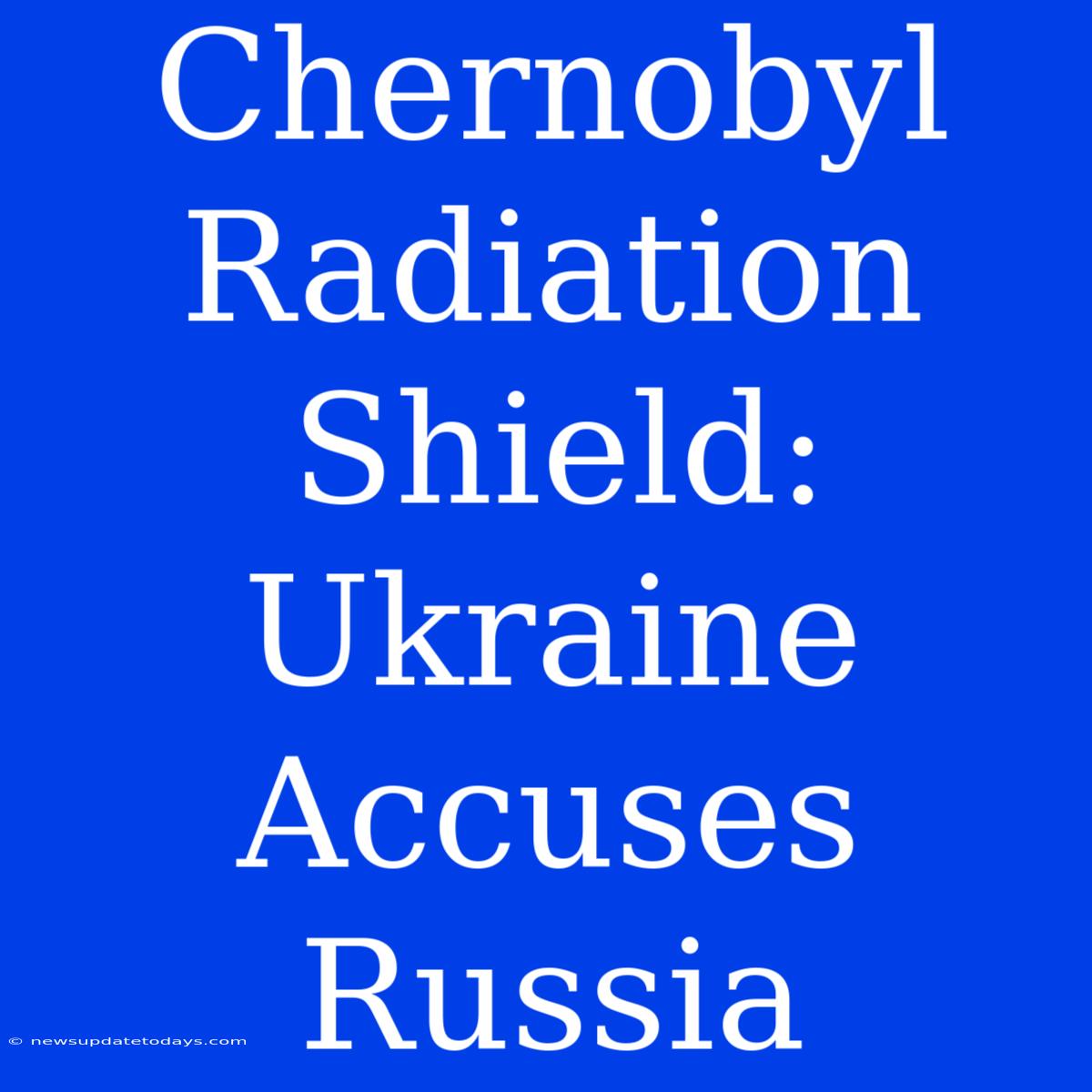Chernobyl Radiation Shield: Ukraine Accuses Russia of Theft and Sabotage
The ongoing conflict in Ukraine has unveiled a disturbing new dimension: accusations against Russia regarding the Chernobyl nuclear power plant. Ukraine alleges that Russian forces not only occupied the site but also engaged in activities that jeopardized the safety of the already precarious area, specifically targeting the crucial radiation shield. This article delves into the accusations, the potential implications, and the wider context of this alarming development.
The Accusations: Theft and Sabotage of Vital Equipment
Ukraine's claims are serious and far-reaching. They assert that Russian troops looted and damaged crucial equipment at Chernobyl, including the protective shielding designed to contain the radioactive materials remaining from the 1986 disaster. This alleged sabotage significantly raises concerns about the potential for increased radiation leakage and the long-term environmental consequences. The accusations extend beyond mere theft; they suggest a deliberate attempt to disrupt the safe containment of hazardous materials, an act with potentially catastrophic global implications.
The Significance of the Chernobyl Radiation Shield
The Chernobyl Exclusion Zone remains highly radioactive. The sarcophagus, built over the destroyed reactor, and other protective measures, including specialized equipment and shielding, are vital to preventing further release of radioactive materials into the environment. Any damage or removal of this protective infrastructure poses a significant threat, not only to the local population but also to the wider region and potentially the global community through airborne dispersion. The consequences of even a minor breach could be devastating and long-lasting.
International Concern and the Need for Independent Verification
These accusations have sparked international concern. Independent verification of Ukraine's claims is crucial to fully understand the extent of the damage and the potential risks. International bodies, such as the IAEA (International Atomic Energy Agency), are actively investigating the situation, aiming to assess the impact of the Russian occupation on the Chernobyl site’s safety and stability. Transparency and access to the site for independent inspectors are paramount to establishing the truth and ensuring accountability.
Potential Long-Term Consequences
The potential long-term consequences of the alleged Russian actions are deeply concerning. Increased radiation levels could have severe health impacts on the surrounding populations and the environment. The potential for wider environmental contamination through air and water necessitates a comprehensive and sustained international response to mitigate the risks. The long-term ecological impact on the fragile Chernobyl ecosystem also requires detailed study and remediation efforts.
Conclusion: A Grave Situation Requiring Immediate Attention
The situation at Chernobyl underscores the far-reaching consequences of the conflict in Ukraine. Ukraine's accusations against Russia concerning the deliberate targeting of the radiation shield demand a thorough and independent investigation. The international community must collaborate to ensure the safety and security of the Chernobyl site, not only to prevent further environmental damage but also to safeguard global health and security. The lack of transparency from the Russian side only serves to exacerbate concerns and necessitates a stronger push for international accountability and verification. The future of the Chernobyl Exclusion Zone, and the health of the planet, hangs in the balance.

